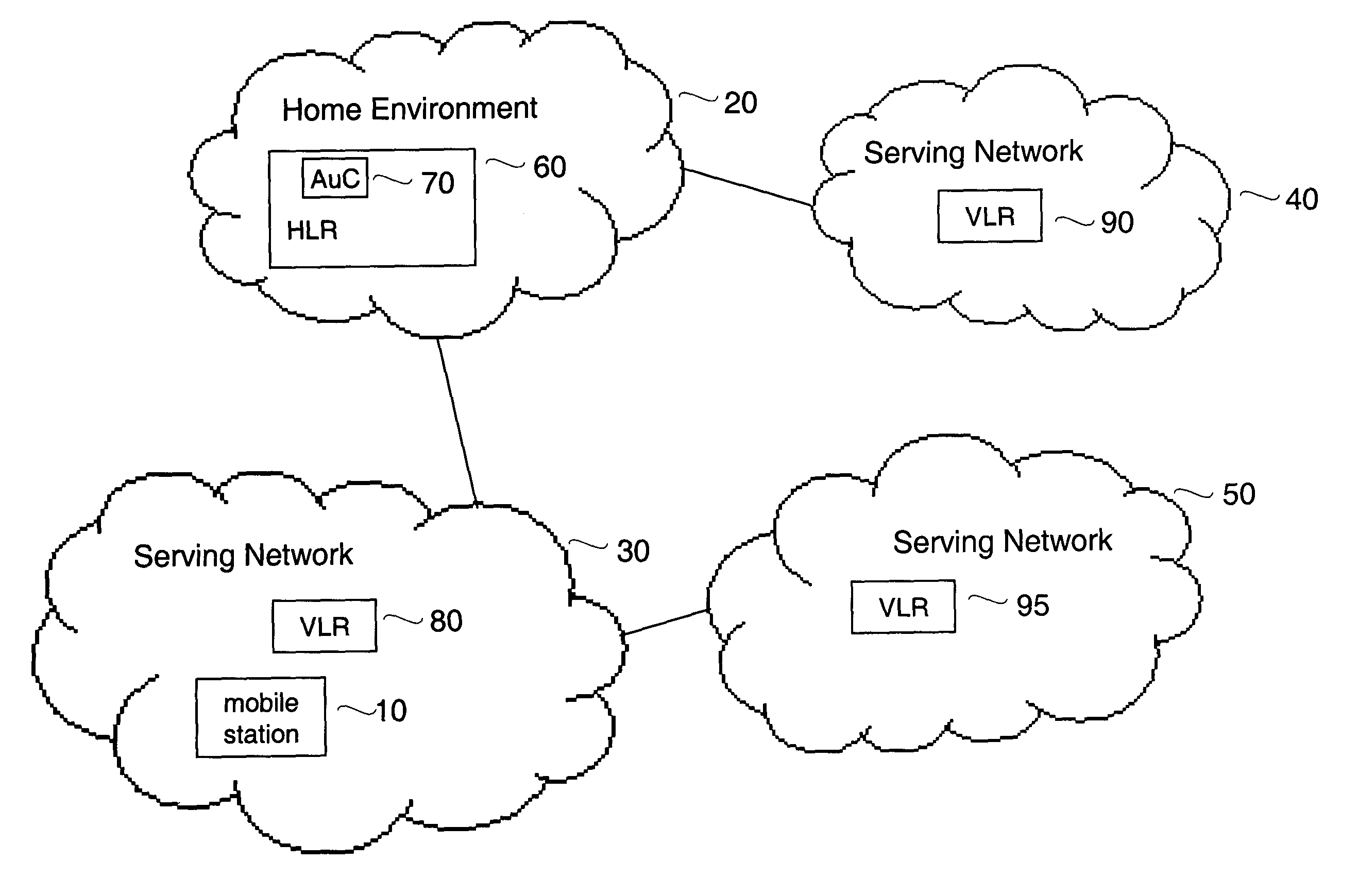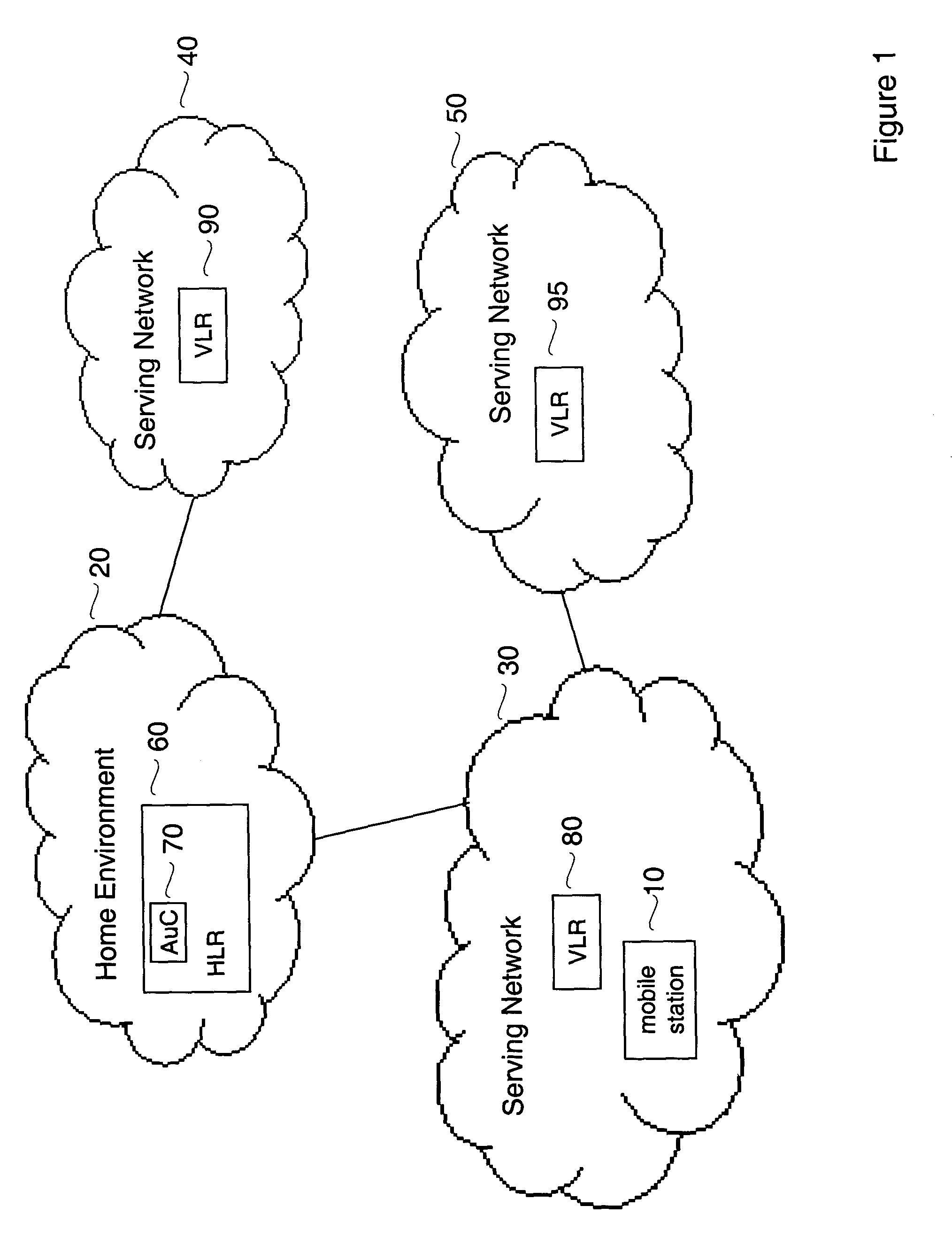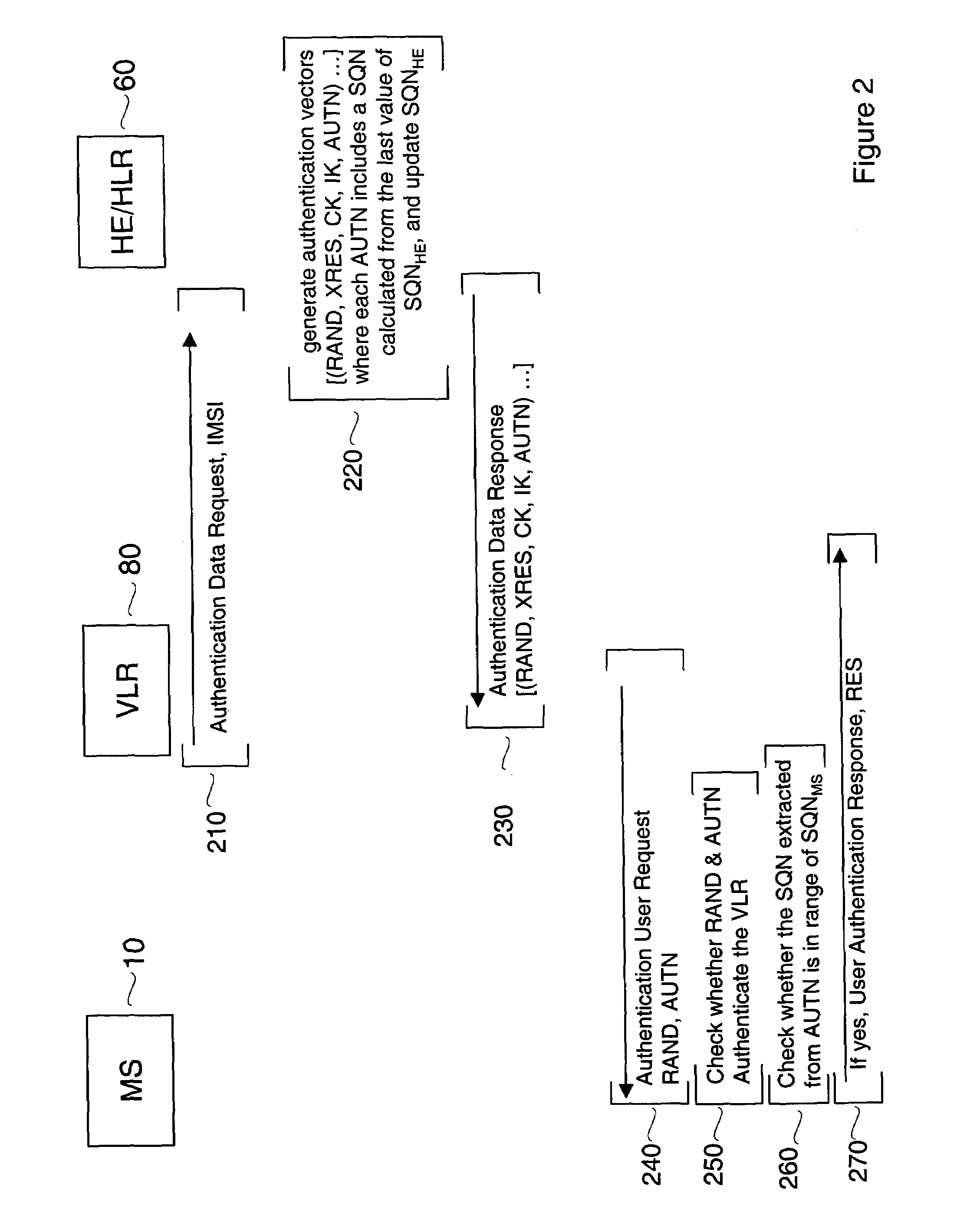Robust authentication and key agreement protocol for next-generation wireless networks
a wireless communication system and authentication protocol technology, applied in the field of authentication and key agreement protocols in wireless communication systems, can solve the problems of insufficient security consideration in the first-generation, inability to completely address security issues, and inability to change the identity of mobile phones to obtain fraudulent services, so as to reduce the probability of spurious resynchronization requests
- Summary
- Abstract
- Description
- Claims
- Application Information
AI Technical Summary
Benefits of technology
Problems solved by technology
Method used
Image
Examples
Embodiment Construction
[0022]Embodiments of the invention provide assurance regarding the freshness of ciphers exchanged during authentication of a user device in a mobile network without requiring the use of counters for this purpose. Embodiments of the invention, by eliminating the use of counters, also avoid the problems arising from the requirement to synchronize such counters.
[0023]FIG. 1 shows an example of a wireless communications network that may be used with embodiments of the present invention. The network of FIG. 1 includes a number of individual wireless networks, namely, Home Environment 20, Serving Network 30, Serving Network 40 and Serving Network 50. Home Environment 20 is the home environment network for Mobile Station 10, which is shown in FIG. 1 as roaming in Serving Network 30. In FIG. 1, Serving Network 30 and Serving Network 40 are directly connected to Home Environment 20, whereas Serving Network 50 is connected to Home Network 30 through Serving Network 30. Although the network of...
PUM
 Login to View More
Login to View More Abstract
Description
Claims
Application Information
 Login to View More
Login to View More - R&D
- Intellectual Property
- Life Sciences
- Materials
- Tech Scout
- Unparalleled Data Quality
- Higher Quality Content
- 60% Fewer Hallucinations
Browse by: Latest US Patents, China's latest patents, Technical Efficacy Thesaurus, Application Domain, Technology Topic, Popular Technical Reports.
© 2025 PatSnap. All rights reserved.Legal|Privacy policy|Modern Slavery Act Transparency Statement|Sitemap|About US| Contact US: help@patsnap.com



